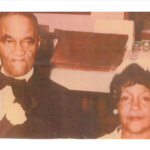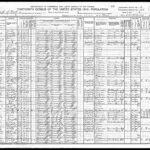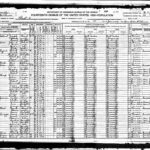
Date of Birth
March 1, 1904
Place of Birth
Holly Springs, Mississippi
Towns / Cities Moved Into
Marshall, Mississippi |
Cook, Illinois, USA
Known Occupation
Farm Laborer
Religion
-
Spouse
Death Information
Year of death
21 Jul 1978
Place of death
Chicago, Cook County, Illinois, USA
Cause of death
-
Obituary

Parents

Essex Suggs

Jewell Suggs
Marital Status


Married Franklin Alexander
1925
Siblings










Children

Narrative / Story
Cecelia Suggs Alexander was born on March 1, 1904, in Holly Springs, Mississippi. She was the second of eight children born to Essex and Jewel ‘Missy’ King Suggs. Growing up on the family farm, Cecelia was surrounded by her siblings Alennie, Alquin, Eva, Eva Bessie, Allen, Golden Sr., Galivand, Tony, Essie Mae, and Jewel. The Suggs family was highly respected in their community, largely due to her father Essex being one of the first Black men in the area to acquire significant land. This early life on the farm instilled in Cecelia a strong work ethic and a sense of resilience that would carry her through the rest of her life.
Life in Mississippi was challenging, with the ever-present threat of racial violence. Although specific instances of lynching near her residence are not documented, the pervasive threat was enough to make life precarious for Black families in the South. Cecelia’s early years were marked by hard work on the farm, and by 1910 and 1920, she was living with her family in Beat 4, Marshall, Mississippi. These years on the farm not only shaped her work ethic but also her determination to seek better opportunities beyond her immediate environment.
At the age of 17, Cecelia married Frank Alexander. The details of their meeting are not well-documented, but their union marked the beginning of a significant chapter in Cecelia’s life. The couple decided to move north to Chicago, Illinois, seeking to escape the oppressive conditions of the South and to find better opportunities. This move was part of the larger Great Migration, where many Black families relocated to northern cities in search of a better life.
Upon arriving in Chicago, Cecelia and Frank initially settled on the North Side. The neighborhoods they lived in during this period were part of a rapidly growing Black community. The 1930s saw them living in various locations on the North Side of Chicago, trying to establish themselves in a new city. However, due to gentrification and the need for affordable housing, they eventually moved to the South Side, a region known as Bronzeville, which was a cultural and economic hub for Black residents.
By 1940, the family had settled on East 45th Place in Chicago. This area provided a sense of community and stability for Cecelia and Frank as they raised their thirteen children. Of these children, twelve survived to adulthood: Musette, Bernice, Celestine (“Teany”), Frank II (“F.C.”), Lester, Dixie, Lucille, Maxine I (who did not survive), Essex, Barbara, Troy, Jewel, and Maxine II. Cecelia’s life revolved around her large family, and she worked tirelessly to support them. She held various jobs, including working in a large commercial laundry, cleaning private homes, and housekeeping at a motel.
Despite the challenges they faced, Cecelia and Frank managed to purchase three different properties during their lifetime. This achievement was a testament to their determination and resilience. Cecelia’s strong work ethic and dedication to her family were evident in every aspect of her life. Her efforts ensured that her children had a stable home and the opportunity to build better lives for themselves.
In the 1940s, Cecelia and Frank made a strategic move to Lansing, Michigan, with their daughter Bernice and son-in-law Ted Davenport. This move was aimed at saving money, which eventually allowed them to buy a home on Wells Street when they returned to Chicago. This period in Lansing was a testament to their ability to adapt and make decisions that would benefit their family’s future.
Cecelia was also known for her love of baseball. She enjoyed listening to Cubs and White Sox games on the radio, a pastime that brought her joy amidst the busyness of her daily life. Sundays were special to her, as she made it a point to go to church, instilling a sense of faith and community in her children. The Suggs family home was always bustling with activity, and visitors like their grandson Lawrence often slept on the floor during their stays, a testament to the close-knit and welcoming nature of the family.
Throughout her life, Cecelia witnessed significant historical changes. From her birth in rural Mississippi to her life in bustling Chicago, she lived through the Great Depression, World War II, and the civil rights movement. Her story is one of resilience and perseverance, as she navigated the challenges of being a Black woman in America during a time of profound social and economic change. Her legacy of strength, hard work, and dedication to family lives on through her descendants, who remember her fondly.
Cecelia Suggs Alexander passed away on July 21, 1978, in Chicago, Cook County, Illinois. She was laid to rest at Lincoln Cemetery in Blue Island, Cook County, Illinois. Her life was a testament to the power of perseverance and the importance of family, values she instilled in her children and grandchildren. Cecelia’s journey from a farm in Mississippi to the vibrant city of Chicago is a story of enduring strength and a legacy that continues to inspire.

